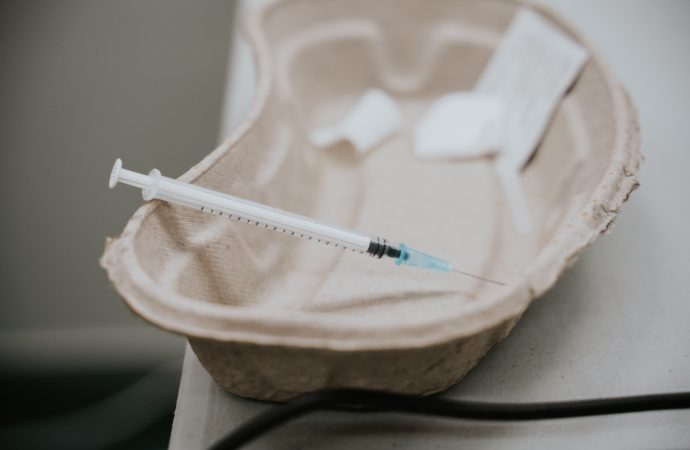As we age, our immune system weakens and becomes more vulnerable to dangerous viruses like R.S.V. (Respiratory Syncytial Virus). While a vaccine is available to protect elderly people from this potentially life-threatening illness, many myths and misconceptions surround its usage. In this blog post, we will debunk these common misunderstandings and help you understand the
As we age, our immune system weakens and becomes more vulnerable to dangerous viruses like R.S.V. (Respiratory Syncytial Virus). While a vaccine is available to protect elderly people from this potentially life-threatening illness, many myths and misconceptions surround its usage. In this blog post, we will debunk these common misunderstandings and help you understand the importance of getting vaccinated against R.S.V. Stay tuned for an eye-opening journey into the world of R.S.V. vaccines for elderly people!
What is R.S.V.?
R.S.V., or respiratory syncytial virus, is a common virus that primarily affects the lungs and can cause severe respiratory illness, particularly in young children and the elderly. Although there is no cure for R.S.V., there are vaccines available that can help prevent its spread. The R.SV. vaccine is recommended for all people over the age of 60, as well as for those with chronic lung or heart conditions. The vaccine is typically given in two doses, with the second dose administered four to six weeks after the first.
The R.S.V. Vaccine
The R.S.V. vaccine is one of the most effective ways to protect elderly people from the respiratory syncytial virus (R.S.V.), which is a leading cause of pneumonia and other respiratory infections. Despite its effectiveness, however, there are still many myths and misconceptions about the vaccine, which can prevent people from getting it.
Here are some of the most common myths about the R.S.V. vaccine:
1) The R.S.V. vaccine is not effective in preventing pneumonia or other respiratory infections in elderly people.
This is simply not true. The R.S.V. vaccine has been shown to be highly effective in preventing pneumonia and other respiratory infections in elderly people, even when they are exposed to the virus.
2) Elderly people do not need to get the R.S.V vaccine because they are not at risk for getting sick from the virus.
Again, this is false. Elderly people are actually at a higher risk for developing serious complications from R
Why the Elderly Need the R.S.V. Vaccine
There are many myths and misconceptions about R.S.V. vaccines for elderly people, but the truth is that the elderly need this vaccine just as much as anyone else. The main reason for this is that the elderly are more susceptible to contracting respiratory syncytial virus (R.S.V.), which can cause severe respiratory illness. R.S.V. is a highly contagious virus that is typically spread through contact with respiratory secretions, such as saliva, mucus, or blood, from an infected person. It can also be Spread through contact with contaminated surfaces or objects, such as doorknobs, door handles, countertops, or toys. Symptoms of R.S.V include coughing, wheezing, difficulty breathing, and fever, and it can lead to pneumonia and bronchiolitis in severe cases. Elderly people are at a higher risk for developing these severe complications from R.S.V., which is why it’s so important for them to be vaccinated against the virus. The RSR-11 vaccine is the only currently available vaccine that protects against RSR-11 serotypes of RSR-5 viruses (the most common type of RSR-5 virus), and it is recommended for all adults over the age of 60 years old . The RSV-A (B) vaccines are not currently recommended for use in adults due to their low efficacy rates . However, clinical trials are currently underway for a new RSV vaccine
How does the R.S.V. Vaccine Work?
R.S.V. vaccines are created using a weakened form of the virus. When this vaccine is injected into the body, it causes an immune response. The body then produces antibodies to the weakened form of the virus, which provides protection against infection from the more virulent, or “wild”, form of the virus.
The R.S.V. vaccine is typically given as an injection, and is usually given to people over the age of 60 who are considered at high risk for complications from R.S.V., such as those with chronic lung disease or heart failure. The vaccine is typically given in two doses, with the second dose being given four to eight weeks after the first dose.
The R.S.V. vaccine is generally safe and well-tolerated, with the most common side effects being mild and short-lived, such as pain at the injection site, redness or swelling at the injection site, or fever. More serious side effects are rare but can include allergic reactions (such as hives or difficulty breathing), neurologic problems (such as Guillain-Barré syndrome), and blood disorders (such as thrombocytopenia).
Are there any Side Effects?
There are no known side effects associated with R.S.V. vaccines for elderly people. However, as with any vaccine, there is always the potential for minor side effects, such as soreness at the injection site or mild fever. These side effects are generally short-lived and do not pose a serious threat to the vaccinated individual.

















Leave a Comment
Your email address will not be published. Required fields are marked with *